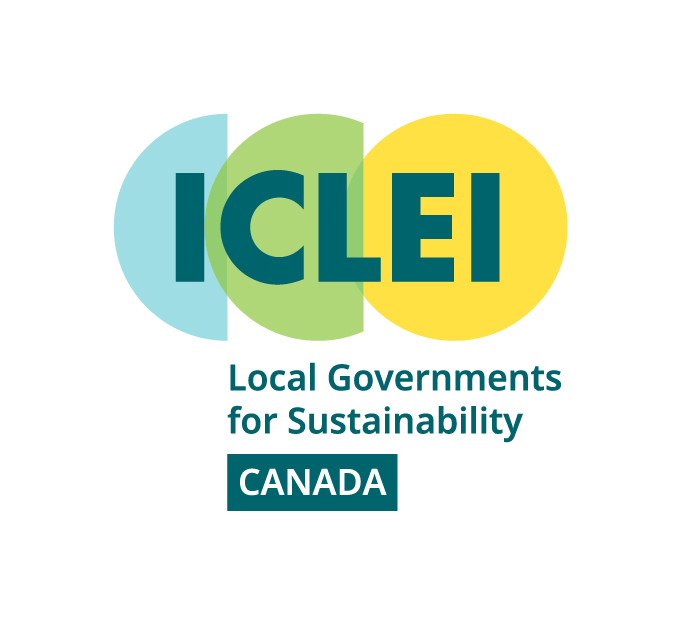Advancing Adaptation
Climate change resilience training for ontario municipalitiesAdvancing Adaptation Project
Planning for a changing climate at the local level and implementing adaptation initiatives is challenging for many municipalities. In particular, smaller and rural municipalities often lack the resources, capacity and knowledge to assess impacts, develop plans, and implement action to prepare for a changing climate. Moreover, different municipalities and communities are at different levels of capacity and different stages of preparing for a changing climate. As a result, a one-size-fits-all approach to assisting municipalities as they prepare for climate change has limited utility.
The Advancing Adaptation project, led by ICLEI Canada, aimed to increase climate change resilience in communities in the Great Lakes watershed, regardless of their stage in the adaptation process. ICLEI worked with 27 Ontario municipalities in three project cohorts to build capacity around risk and vulnerability assessments, adaptation planning, and implementation through collaboration over an 18-month period. The resources created as part of this project are included on this page and can be used by any municipality to help with their own adaptation efforts.
Vulnerability and Risk Assessment Cohort
The train-the-trainer vulnerability and risk assessment cohort supported local governments that had not yet undertaken any formal adaptation effort. This portion of the project helped municipalities understand climate projections, how to use and apply climate data and information from various sources, identify climate impacts, and assess their community’s vulnerability to climate risks through a collaborative process.
Adaptation Planning Cohort
The train-the-trainer adaptation planning cohort supported local governments that had already undertaken some form of vulnerability or risk assessment process. This portion of the project focused on the creation or integration of an adaptation plan/strategy to address risks identified in the assessment process, with a particular focus on including implementation considerations and monitoring metrics. This portion of the project included two cohorts — the second cohort included participants that completed the risk and vulnerability assessment cohort.
Implementation Through Collaboration Cohort
The implementation through collaboration cohort supported local governments that had already identified adaptation actions or solutions through an adaptation plan/strategy. This cohort focused on the implementation of community-oriented adaptive actions over the course of two years, and included financial support as well as guidance to address implementation challenges, build local support, identify performance indicators, etc.
Participating Municipalities
- Bonfield
- Bracebridge
- Burlington
- Caledon
- Dufferin County
- Gravenhurst
- Greater Sudbury
- Halton Hills
- Hamilton
- Huntsville
- Huron-Kinloss
- Lake of Bays
- London
- Loyalist Township
- Mississauga
- Muskoka District
- Muskoka Lakes
- Orillia
- Parry Sound
- Peterborough
- Pickering
- Richmond Hill
- Shawanaga First Nations
- Thunder Bay
- Timmins
- Windsor
Resources from the Advancing Adaptation Project

Engaging Meaningfully: Leveraging Community Engagement to Advance Implementation
Climate change challenges are often too large and complex to be addressed by a single organisation. This resource was created to help municipalities engage with multiple institutions and stakeholders to make the most of external resources available for implementation.

Introducing Indicators: A First Look at Using Indicators to Measure Progress on Adaptation
Indicators are essential to measure and understand the effectiveness of adaptation actions. This resource provides a starting point for municipalities that are developing or updating climate adaptation plans and need to identify relevant, measurable indicators.

Equitable Climate Adaptation: Considerations for Local Governments
This resource is intended to address the barriers preventing local governments from taking action to support climate change adaptation in a way that centres equity and community engagement. It creates both a case for this approach as well as offer tangible, actionable ideas and tools for partners in local government.

Cost of Doing Nothing: A Toolbox for Building a Local Business Case for Adaptation
When investing in climate action, local decision makers need to weigh the costs of action versus inaction but rarely have the time and resources needed to do so. The Cost of Doing Nothing (CODN) toolbox provides guidance on collecting locally-relevant data to weigh the costs inaction within a local context when investing in climate action. The CODN resources also helps municipalities frame local data within a national and provincial/territorial context, and examines the costs and impacts of climate change across multiple knowledge systems, climate change hazard, and sectors.

Adaptation Implementation Case Studies
The 11 Ontario municipalities in the implementation through collaboration cohort designed and implemented climate change adaptation actions within their communities. A case study was developed for each municipality to showcase the process, experience, and learnings from each implementation action. Explore the case studies and learn more of the initiatives that were completed through their participation in the Advancing Adaptation project.
ICLEI Canada gratefully acknowledges that the Advancing Adaptation project is made possible with funding from the Ontario Ministry of Environment, Conservation and Parks (MECP) alongside financial support from the Government of Canada through the federal Department of Environment and Climate Change Canada.
Photo credits: Header image: Wilson, B (2009) retrieved from Flickr. Boardwalk: Jaime Dantas retrieved from Unsplash. Breakwall: Jeffrey Eisen retrieved from Unsplash. Water urban park image: Campbell, C. (2010) retrieved from Flickr.
Reach us
iclei-canada@iclei.org
Suite 204
401 Richmond St. W
Toronto, ON
M5V 3A8
We respectfully acknowledge that ICLEI Canada’s work happens across Turtle Island which has traditionally been and is home to many diverse First Nations, Inuit, and Métis peoples since time immemorial.

